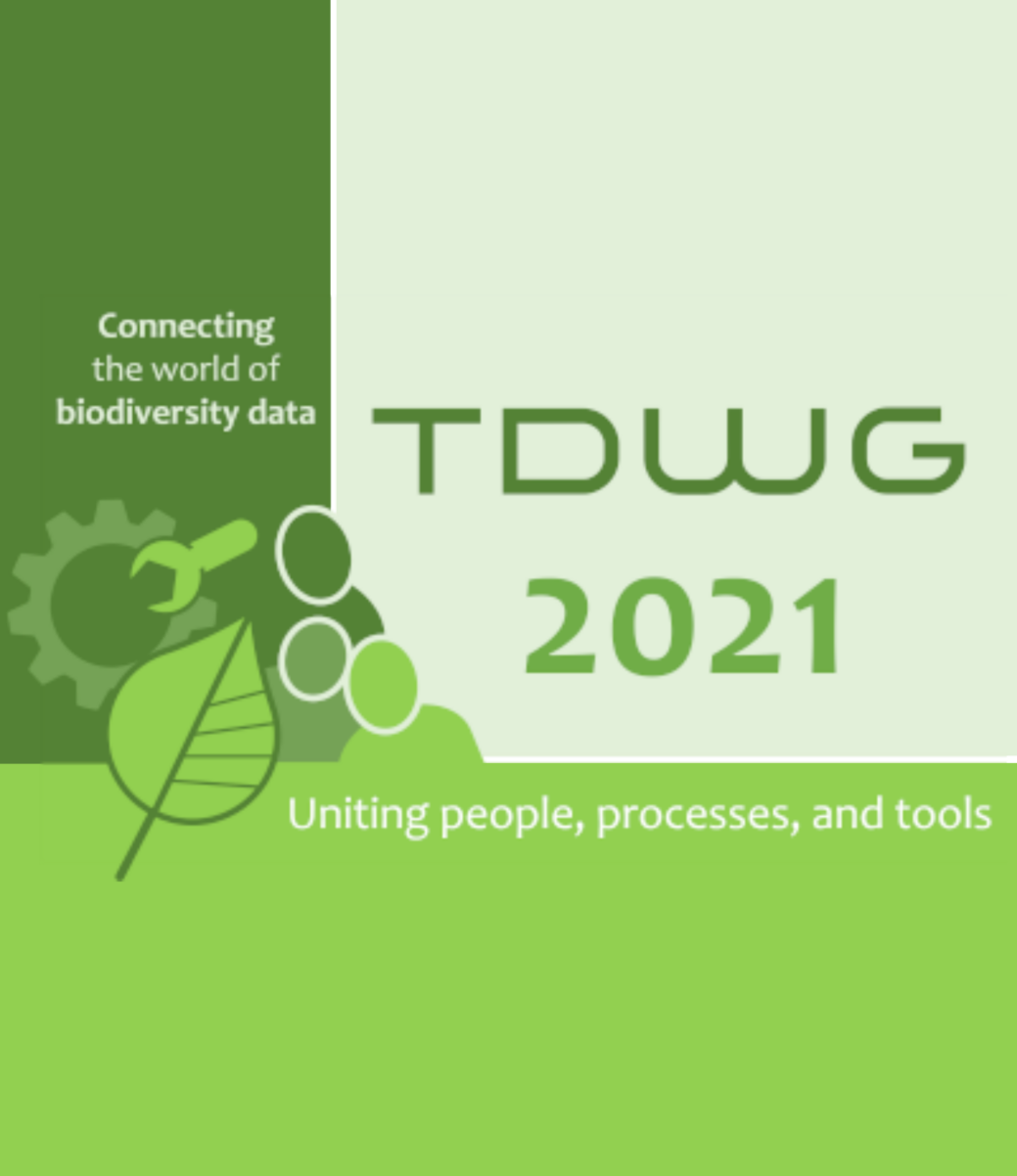TDWG 2021 Conference
Home | Events | Researchers | TDWG 2021 Conference

Online, 18–22 October 2021. The Taxonomy Database Working Group 2021 Conference, ‘Connecting the world of biodiversity data: standards uniting people, processes, and tools’, will comprise webinar-style symposia, presentations, panel discussions, and virtual posters. In response to feedback from last year, the working sessions will occur after the main conference. The main conference will be held over the week of 18-22 October, and working sessions will be scheduled for the following month.
The event will be hosted virtually by the University of Florida, Gainesville and its Florida Museum of Natural History, with Dr. Pam Soltis, Director of the University of Florida Biodiversity Institute, and Research Principal Invstigator for iDigBio. There will a modest registration fee (discounted for students and participants from lower middle-income countries), and three to four sessions a day are contemplated, lasting 90-120 minutes each, with at least a 30-minute break between sessions.
Abstracts for all contributions (oral presentations and virtual posters) will be published in the TDWG open access journal, Biodiversity Information Science and Standards. This year publication costs will not be passed to authors, but defrayed by registration fees and conference sponsorships. Please click here for the call for organised session proposals (symposia, panel discussions, etc.) and note that submissions close on 16 April 2021.
The Taxonomic Databases Working Group is today known as Biodiversity Information Standards (TDWG), a not-for-profit, scientific and educational association formed to establish international collaboration among the creators, managers and users of biodiversity information and to promote the wider and more effective dissemination and sharing of knowledge about the world’s heritage of biological organisms.